Happy Friday! Cambridge scientists say they’ve found the strongest (albeit still inconclusive) evidence of extraterrestrial life yet. Great, something else to worry about.
Quick Hits: Today’s Top Stories
- President Donald Trump met with Italian Prime Minister Giorgia Meloni at the White House on Thursday, expressing optimism that the U.S. and the European Union would reach a trade deal. Meloni’s trip marked the first time a European leader has visited Washington, D.C., since Trump imposed, then walked back, 20 percent blanket tariffs on the bloc earlier this month. “They want to make one very much, and we are going to make a trade deal, I fully expect it, but it will be a fair deal,” Trump said. Europe currently faces a 10 percent tariff on its exports and is preparing countermeasures against the U.S. should trade talks fail.
- President Trump on Thursday threatened to remove Jerome Powell, the chairman of the traditionally independent Federal Reserve. Writing on Truth Social, Trump accused Powell of “playing politics” by holding off from cutting interest rates and claimed that if “I want him out, he’ll be out of there real fast, believe me.” The threats followed Powell’s address to the Economic Club of Chicago on Wednesday, during which he said the Trump administration had ushered in “fundamental policy changes” with its tariffs, which were “significantly larger than expected.” Powell has previously said the president lacks the power to remove him without cause before his term is up.
- The Supreme Court on Thursday set a May 15 date for oral arguments regarding challenges to President Trump’s executive order seeking to revoke birthright citizenship. Three district courts—in Washington, Maryland, and Massachusetts—issued injunctions against the order back in February, putting a nationwide halt on its enforcement, and to date, attorneys general from 22 states have challenged the constitutionality of the order. But the administration is currently requesting that the Supreme Court limit the reach of those injunctions—that is, to allow the executive order to still apply to parties that haven’t challenged the order.
- Sen. Chris Van Hollen, a Democrat from Maryland, met Thursday with Kilmar Abrego Garcia, an immigrant who was deported to an El Salvador prison due to an “administrative error” last month. Van Hollen, who arrived in the country on Wednesday to verify Garcia’s health and safety, had been blocked from meeting the Salvadoran national multiple times before being permitted to meet him. El Salvador’s president, Nayib Bukele, has said he won’t return Garcia to the U.S., while the White House has contended it lacks the authority to order a foreign country to expatriate its own citizen. A White House statement on Thursday called Van Hollen’s visit “disgusting.”
- U.S. District Judge Leonie Brinkema ruled Thursday that Google possesses an illegal monopoly in parts of the online advertising market. By combining their ad server business with their ad exchange business, Google combined services used to manage ad sales with those used to auction website space, Brinkema said. Google and the Justice Department and 17 state attorneys general, which brought the suit in 2023, will both now file arguments about what penalties are appropriate and what remedies Google should be forced to implement.
- A gunman opened fire outside Florida State University’s student union on Thursday, killing two people and wounding six others. The shooter is believed to be a current FSU student and the son of a sheriff’s deputy, whose gun he allegedly used to carry out the attack. The shooter was wounded by responding police officers after refusing to comply with orders and is currently being treated in the hospital. His motives remain unknown. The six people wounded by the attack are all reportedly in fair condition.
Iran Deal Redux?
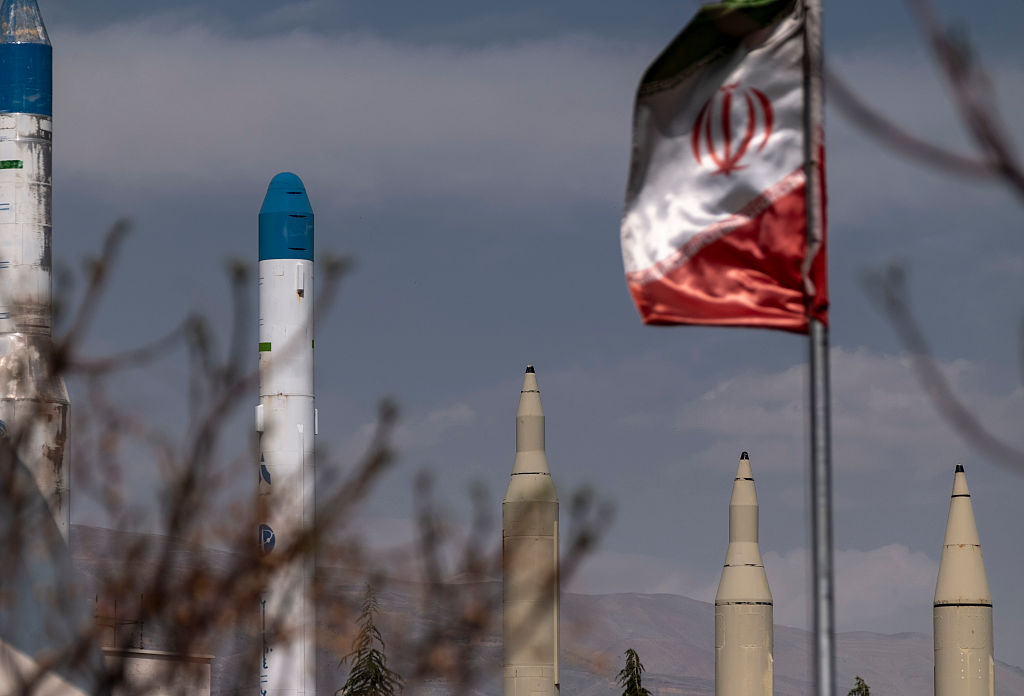
In May 2018, President Donald Trump delivered a speech announcing his decision to withdraw the United States from the Joint Comprehensive Plan of Action (JCPOA), an Obama-era accord aimed at curbing Iran’s nuclear enrichment. The deal, he argued, extended to the Islamic Republic vital sanctions relief without permanently limiting or eliminating its uranium enrichment capabilities, putting Tehran in a strong position to obtain a bomb at a later date.
“In theory, the so-called ‘Iran deal’ was supposed to protect the United States and our allies from the lunacy of an Iranian nuclear bomb, a weapon that will only endanger the survival of the Iranian regime,” he said. “In fact, the deal allowed Iran to continue enriching uranium and—over time—reach the brink of a nuclear breakout.”
So why, almost seven years later, does Trump’s administration appear ready to revive some iteration of the abandoned agreement? Speaking to Fox News on Monday, White House special envoy Steve Witkoff said that Iran does not need to enrich uranium beyond 3.67 percent—the cap set by the 2015 JCPOA—in a major reversal from the administration’s previous vows to end Tehran’s enrichment program altogether. Witkoff has since walked back the remarks, but the mixed signals underscored a key challenge facing American negotiators as they seek to ...
As a non-paying reader, you are receiving a truncated version of The Morning Dispatch. You can read our 1,098-word item on Trump’s pursuit of an Iran deal in the members-only version of TMD.
Today’s Must-Read
Donald Trump and Elon Musk’s DOGE team continues to slash federal government spending in an almost bafflingly cruel, capricious, and haphazard way. To call the cuts “selective” would be a wild understatement. Apparently, the federal government can afford to spend $1 trillion on defense, but it cannot afford to help public schools whose students might be getting lead poisoning, or to fund PEPFAR, a wildly successful program to fight HIV and AIDS worldwide that has enjoyed bipartisan support since President George W. Bush first championed and launched it. While it’s important not to dismiss the profound harm Trump’s budget-cutting rampage is causing, the rampage raises the question of what exactly Trump’s detractors, were they in power, would do instead.
Toeing the Company Line
Get Out by Good Friday, Feds Say to Afghan Christians
The Department of Homeland Security has revoked immigration status of some Afghans who fled to the U.S.
Fentanyl Fallacies
Illegal immigrants aren’t the ones bringing it in, and overdose deaths are decreasing.
The Tucker Wing Is Winning
We can’t call war crimes ‘war crimes’ because it will offend Russia.
Worth Your Time
- President Donald Trump’s tariff policies may be aimed at boosting domestic industry, but American producers are already feeling the pain. Reporting for the San Francisco Standard, Ezra Wallach investigated (similar to our own Steve Hayes) how the trade war is hurting one of California’s most celebrated exports: wine. “Wine enthusiasts like to talk about terroir—the way hyperlocal factors, from the minerality of the soil to the topography of the hills, express themselves in the flavor of the grape. But the business of making and bottling wine is anything but hyperlocal. Vintners in Napa and Sonoma are reliant on a carefully calibrated mix of materials from around the world, including oak barrels from France, porous corks from Portugal, and glass bottles from China and Mexico,” he wrote. “While there are alternatives to all these, high-end producers cater to sophisticated buyers who don’t accept cut corners. This means even the most celebrated California wineries are facing an unprecedented challenge from President Donald Trump’s will-they-or-won’t-they tariff policy while trying to remain competitive on price and keep quality consistent.”
- In Politico Magazine, Michael Hirsh warned that the U.S.’s seeming withdrawal from the world stage may already be kicking off a nuclear arms race. “The new nuclear powers aren’t just the rogue nations that have long been the focus of U.S. concern, countries like Iran and North Korea. Increasingly, the nations considering going nuclear are longtime U.S. allies, from Germany to South Korea, Japan to Saudi Arabia. Faced with the threat of U.S. withdrawal from its defense commitments, more and more countries are now openly talking about embracing the bomb—and just as worrisome, actually deploying nukes if hostilities break out,” he wrote. “Many U.S. allies now have a sense that Trump is abandoning the entire postwar global system and casting the world back into a vicious scramble for power in which the biggest powers get to dominate their regions and the smaller countries fend for themselves. … As a result, some national security experts say this could be turning into the most unstable period since the early Cold War — an unstable period that could have a lot more nukes in a lot more places.”
Presented Without Comment
Politico: ‘We Are All Afraid’: [Republican Sen. Lisa] Murkowski Says Fear of Retaliation From Trump Administration Is ‘Real’
“It’s quite a statement,” she continued after a long pause, in remarks first reported by the Anchorage Daily News. “We’re in a time and place where — I don’t know, I certainly have not — I have not been here before. And I’ll tell you, I’m oftentimes very anxious myself about using my voice because retaliation is real. And that’s not right. But that’s what you’ve asked me to do and so I’m going to use my voice to the best of my ability.”
Also Presented Without Comment
BBC: U.S. Weapons Left in Afghanistan Sold To Militant Groups, Sources Tell BBC
In the Zeitgeist
Ryan Coogler—the director of Creed and Black Panther—tried his hand at horror with Sinners, which hits theaters today. It’s supposed to be a must-watch (for those of us with a strong stomach, that is).




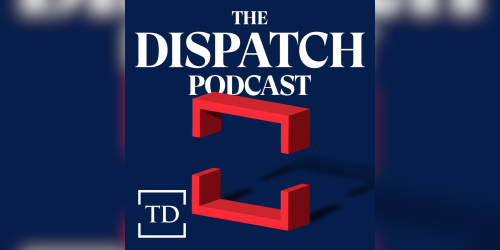


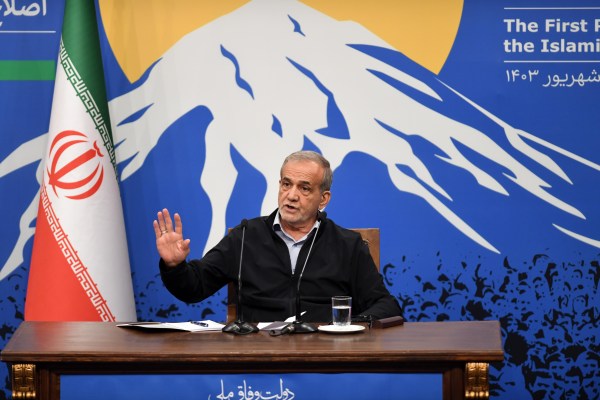

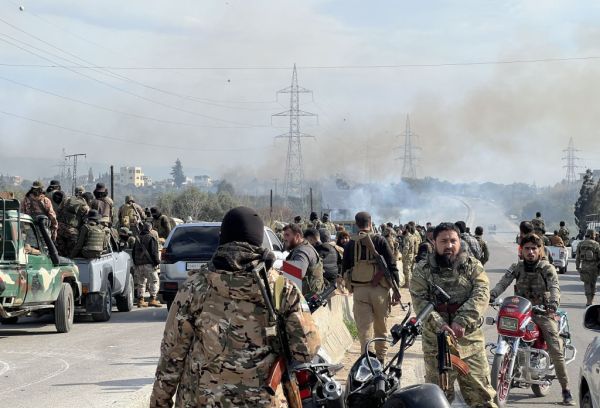

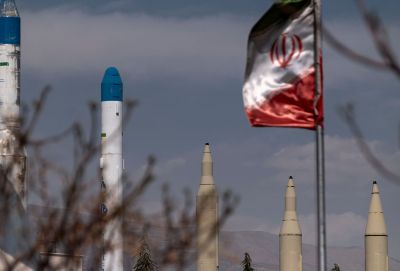
Please note that we at The Dispatch hold ourselves, our work, and our commenters to a higher standard than other places on the internet. We welcome comments that foster genuine debate or discussion—including comments critical of us or our work—but responses that include ad hominem attacks on fellow Dispatch members or are intended to stoke fear and anger may be moderated.
With your membership, you only have the ability to comment on The Morning Dispatch articles. Consider upgrading to join the conversation everywhere.